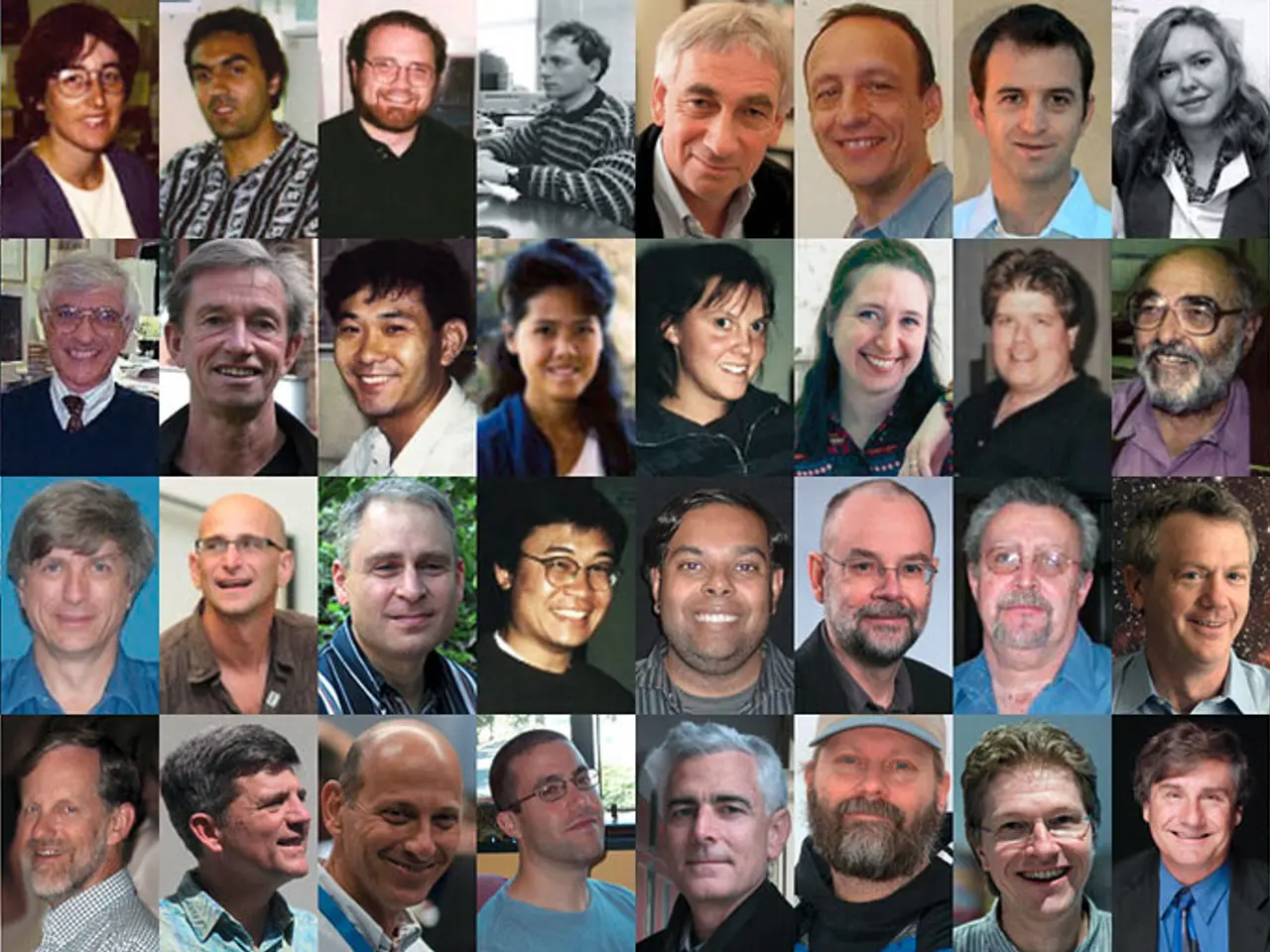Implications of Altered DNA Sequences: Frameshift Mutations
In the complex world of genetics, somatic mutations have emerged as key players in the development and progression of cancer. These changes in the DNA code, which occur after birth and affect only certain cells in the body, can transform our cells into cancerous rebels.
Somatic mutations come in various forms, including point mutations, deletions, and loss-of-function mutations in tumor suppressor genes. Among these, the most common types are those that either activate oncogenes or inactivate tumor suppressors, leading to altered protein structure and function.
Oncogenic mutations, such as activating mutations in oncogenes like KRAS, often result in amino acid changes that cause proteins to gain abnormal function, accelerating cell division and altering cellular differentiation plasticity. Conversely, loss-of-function mutations in tumor suppressors such as TP53 frequently truncate or destabilize the protein, impairing its role in regulating cell cycle checkpoints, apoptosis, and genomic stability.
These mutations affect protein structure via amino acid substitutions (missense), premature stop codons (nonsense), or deletions that disrupt functional domains, leading to altered enzymatic activity, impaired DNA binding, or disrupted protein-protein interactions critical for cell function.
Many somatic mutations contribute to genetic instability by disabling DNA repair mechanisms or cell cycle controls, allowing accumulation of further mutations that fuel cancer progression. Some mutated proteins also release a state of increased cellular developmental plasticity, aiding tumor heterogeneity and adaptation.
Prevention is always better than cure when it comes to managing somatic mutations. Healthy lifestyle modifications, such as exercise, a healthy diet, and avoiding harmful substances, can help prevent the accumulation of harmful mutations.
Advances in technology, such as next-generation sequencing (NGS), can identify specific somatic mutations causing cancer. This knowledge can guide the development of targeted therapies that can block the growth of cancer cells that harbor specific mutations.
Genetic counseling can help individuals understand their inherited risk for certain mutations and guide them on taking preventive measures. On the other hand, environmental toxins can directly damage DNA, causing base substitutions, insertions, and deletions.
It's important to note that defective DNA repair mechanisms can lead to a vicious cycle of unrepaired mistakes that fuels genetic instability. Radiation can shatter the genetic code, leading to chromosomal rearrangements, base substitutions, and cell death.
Somatic mutations can be found in genes involved in DNA repair and cell cycle regulation. Understanding these mutations is crucial in the fight against cancer, as identifying them can guide the development of targeted therapies tailored to an individual's unique genetic profile.
References:
[1] Gonzalez-Perez A, et al. Germline variants and cancer susceptibility. Nature Reviews Cancer. 2018;18(1):31-44.
[2] Vogelstein B, et al. The genetics of cancer. Science. 2013;340(6139):1145-1153.
[3] Loeb LA, et al. The role of somatic mutations in cancer. Nature Reviews Cancer. 2017;17(1):21-33.
[4] Nik-Zainal S, et al. The landscape of mutational signatures in 2,658 human cancers. Nature. 2016;533(7606):216-221.
[5] Alexandrov LB, et al. A pan-cancer analysis of altered neoantigen landscapes reveals mechanisms of adaptive immune resistance. Science. 2018;360(6390):643-647.
- Medical-conditions such as cancer are often associated with specific somatic mutations, and these can lead to alterations in health-and-wellness by activating oncogenes or inactivating tumor suppressors.
- In the domain of science and health-and-wellness, understanding somatic mutations found in genes involved in DNA repair and cell cycle regulation is critical for the development of targeted therapies in managing medical-conditions like cancer.




